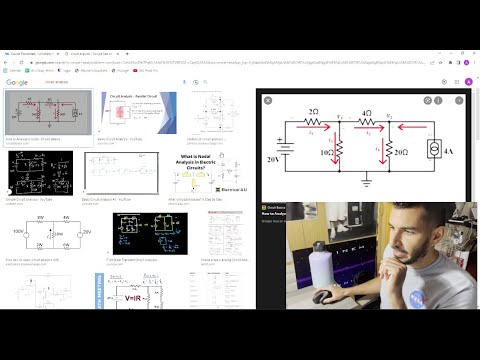High-Paying Electrical Engineer Jobs: Description and Salary

Electrical Engineer Job Description Template
Electrical Engineer Job Description Electrical engineers are professionals who design, develop, and test electrical equipment, systems, and components. They work in various industries, including manufacturing, telecommunications, aerospace, and power generation. The primary responsibility of an electrical engineer is to ensure the safe and efficient operation of electrical systems. One of the key tasks of an electrical engineer is to design electrical circuits and systems. They use computer-aided design (CAD) software to create and analyze circuit diagrams and schematics. They also conduct feasibility studies to determine the practicality of new designs and make necessary modifications to existing systems. Another important aspect of an electrical engineer’s job is to oversee the construction, installation, and maintenance of electrical equipment and systems. They collaborate with other engineers and technicians to ensure that projects are completed within budget and on time. They also conduct tests and inspections to identify potential issues and implement corrective measures. Innovation and problem-solving are two key qualities that an electrical engineer should possess. They need to think creatively to come up with innovative solutions to complex technical challenges. They must also have excellent problem-solving skills to identify and troubleshoot issues that may arise during the design and implementation phases of a project. In summary, electrical engineers are responsible for designing, developing, and maintaining electrical systems. They play a crucial role in various industries by ensuring the efficient and safe operation of electrical equipment. With their innovative mindset and problem-solving skills, they contribute to the advancement of technology and the improvement of our daily lives.Electrical Engineer Responsibilities
Electrical Engineer Requirements
How Much Does A Electrical Engineer Make?
Electrical Engineer Salary
| Experience Level | Salary Range |
|---|---|
| Entry Level | $60,000 – $80,000 |
| Mid-Level | $80,000 – $100,000 |
| Senior Level | $100,000 – $150,000 |
An electrical engineer’s salary can vary depending on their experience level. For entry-level positions, the salary range is typically between $60,000 and $80,000 per year. As engineers gain more experience and move into mid-level positions, the salary range increases to around $80,000 – $100,000 per year. For senior-level electrical engineers who have extensive experience and expertise, the salary range can be between $100,000 and $150,000 per year. These salary ranges are approximate and can vary based on factors such as location, company size, and industry.
Electrical Engineer Salaries by Country
Top Paying Countries for Electrical Engineer
| Country | Average Salary (USD) |
|---|---|
| United States | 100,000 |
| Switzerland | 95,000 |
| Australia | 90,000 |
| Germany | 85,000 |
| Canada | 80,000 |
An electrical engineer’s salary can vary greatly depending on the country they work in. According to recent data, the top paying countries for electrical engineers are the United States, Switzerland, Australia, Germany, and Canada. In the United States, electrical engineers earn an average salary of $100,000 per year, making it the highest paying country for this profession. Switzerland follows closely with an average salary of $95,000, while Australia, Germany, and Canada offer average salaries of $90,000, $85,000, and $80,000 respectively. These figures highlight the importance of considering the geographical location when exploring job opportunities and potential salary prospects as an electrical engineer.
A video on the topic Electrical Engineer
Video Source : Ali the DazzlingInterview Questions for Electrical Engineer
1. Can you explain the concept of electrical resistance?
Resistance is the property of a material that opposes the flow of electric current. It is measured in ohms and is influenced by factors such as the material’s conductivity and dimensions.
2. What is the difference between AC and DC voltage?
AC (alternating current) voltage changes its direction periodically, while DC (direct current) voltage flows in only one direction. AC is commonly used for power transmission, while DC is used for electronic devices and batteries.
3. How do you calculate power in an electrical circuit?
Power can be calculated using the formula: P = VI, where P is power, V is voltage, and I is current. It can also be calculated as P = I^2R, where R is resistance.
4. What are the different types of electrical motors?
There are several types of electrical motors, including AC motors (induction motors, synchronous motors), DC motors (brushed and brushless), stepper motors, and servo motors.
5. Can you explain the concept of electrical grounding?
Electrical grounding involves connecting electrical equipment or systems to the earth or a conductive body to provide safety and protection against electrical faults. It helps direct excess electrical current away from sensitive components or individuals.
6. How do you ensure electrical safety in your work?
To ensure electrical safety, I follow standard operating procedures, use appropriate personal protective equipment, regularly inspect and maintain electrical equipment, and adhere to electrical codes and regulations. I also conduct risk assessments and implement safety measures to prevent electrical hazards.
7. What is the purpose of a circuit breaker?
A circuit breaker is a device that automatically interrupts the flow of electric current in a circuit when it detects an overload or short circuit. Its purpose is to protect the circuit and prevent damage to equipment or electrical fires.
8. How do you troubleshoot electrical circuits?
When troubleshooting electrical circuits, I follow a systematic approach. I start by checking the power source, then examine connections, fuses, and circuit breakers. I use multimeters and other testing equipment to measure voltage, current, and resistance at different points in the circuit to identify any faults or malfunctions.
9. Can you explain the concept of electrical insulation?
Electrical insulation refers to the use of non-conductive materials to prevent the flow of electric current between conductive parts. It is essential for maintaining electrical safety and preventing short circuits or electrical shocks.
10. How do you stay updated with the latest advancements in electrical engineering?
To stay updated with the latest advancements in electrical engineering, I regularly participate in professional development programs, attend conferences and seminars, read industry publications, and engage in online forums and communities. I also actively seek new challenges and projects that allow me to learn and apply new technologies and techniques.






